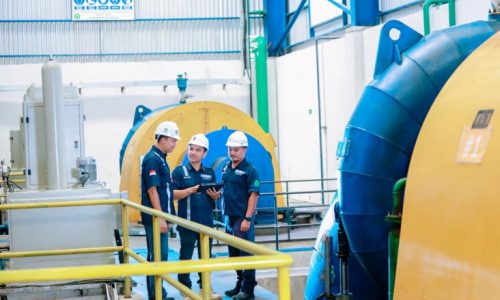As part of the efforts to boost the domestic electric vehicle (EV) industry, the Indonesian government has announced a series of tax incentives aimed at attracting global EV manufacturers to produce EVs in the country.
The incentives have been met with great enthusiasm from global EV manufacturers, with several global EV industry players entering the Indonesian market earlier this year, according to Deputy for Infrastructure and Transportation Coordination at the Coordinating Ministry for Maritime Affairs and Investment Rachmat Kaimuddin on Friday, March 1, 2024.
Rachmat emphasized the importance of these incentives to boost the growth of Indonesia’s domestic automotive industry.
“Tax incentives are an important step to encourage Indonesia to be at the forefront of electric vehicle revolution. By encouraging the world’s EV car manufacturers to produce electric vehicles here, we are not only stimulating economic growth and job creation, but also paving the way for the development of a strong and sustainable automotive ecosystem in Indonesia,” Rachmat said.
“This year will be a special year for the development of domestic EV ecosystem because we will get many EV vehicle options that will certainly make EV vehicles much more affordable for a wide audience,” he added.
Late last year, Indonesia issued Presidential Regulation (Perpres) No.79/2023 which regulates the provision of incentives in the form of zero percent import duty, zero percent luxury tax (PPnBM) which all apply to the import of battery-based electric vehicles (KBLBB) in a Completely Built-Up (CBU) and Completely Knock Down (CKD) state with local content less than 40 percent. The Presidential Regulation also regulates adjustments to the local content requirement (TKDN) provisions for two/three-wheeled battery-based electric vehicles and four or more wheels, one of which is the shift of the 60 percent TKDN provision from 2024 to 2027.
EV manufacturers can enjoy the import and sales tax incentive package until the end of 2025. Furthermore, manufacturers are required to fulfill the EV production requirements in the country or “production debt” until the end of 2027, in accordance with the applicable TKDN provisions.
“This incentive package comes as a win-win solution for Indonesia and global EV investors or manufacturers. On the one hand, Indonesians can enjoy more world-class EV options at competitive prices, while on the other hand, manufacturers can build manufacturing facilities in Indonesia while trialling their EV products and building EV market share in the country,” Deputy for Investment Climate Development at the Ministry of Investment, Iwan Suryana, said.
To ensure the implementation of the incentives will run smoothly, the government has also issued a set of Ministerial Regulations, such as Investment Ministerial Regulation No. 6/2023, Industry Ministerial Regulation No. 29/2023, and Finance Ministerial Regulation (PMK) No. 9/2024 and PMK No. 10/2024.
Furthermore, these incentives serve as a catalyst for Indonesia’s transition to a greener and more sustainable future. By incentivizing the domestic production of electric vehicles, the government not only encourages the use of environmentally friendly vehicles that are crucial for tackling air pollution issues in the country, but can also position Indonesia as a leader in the global fight against climate change.
Indonesia is currently the largest automotive market in the Southeast Asian region. The automotive industry is also one of the backbones of the Indonesian economy, employing around 1.5 million workers and contributing 4 percent to GDP. Meanwhile, the export value of Indonesia’s automotive industry will reach Rp70 trillion by 2022.
Global electric car sales in 2022 will reach 14 percent of total global car sales, and by the end of 2023 will reach 18 percent. But currently, Indonesia’s EV manufacturing capacity lags behind neighboring countries. Indonesia’s production capacity is recorded at 34,000 cars, 2,480 buses and 1.45 million motorbikes per year. Meanwhile, the planned production capacity of electric vehicles in Thailand in 2024 reaches 359,000 per year.
Indonesia targets two million electric passenger cars and 13 million electric motorbikes by 2030.









